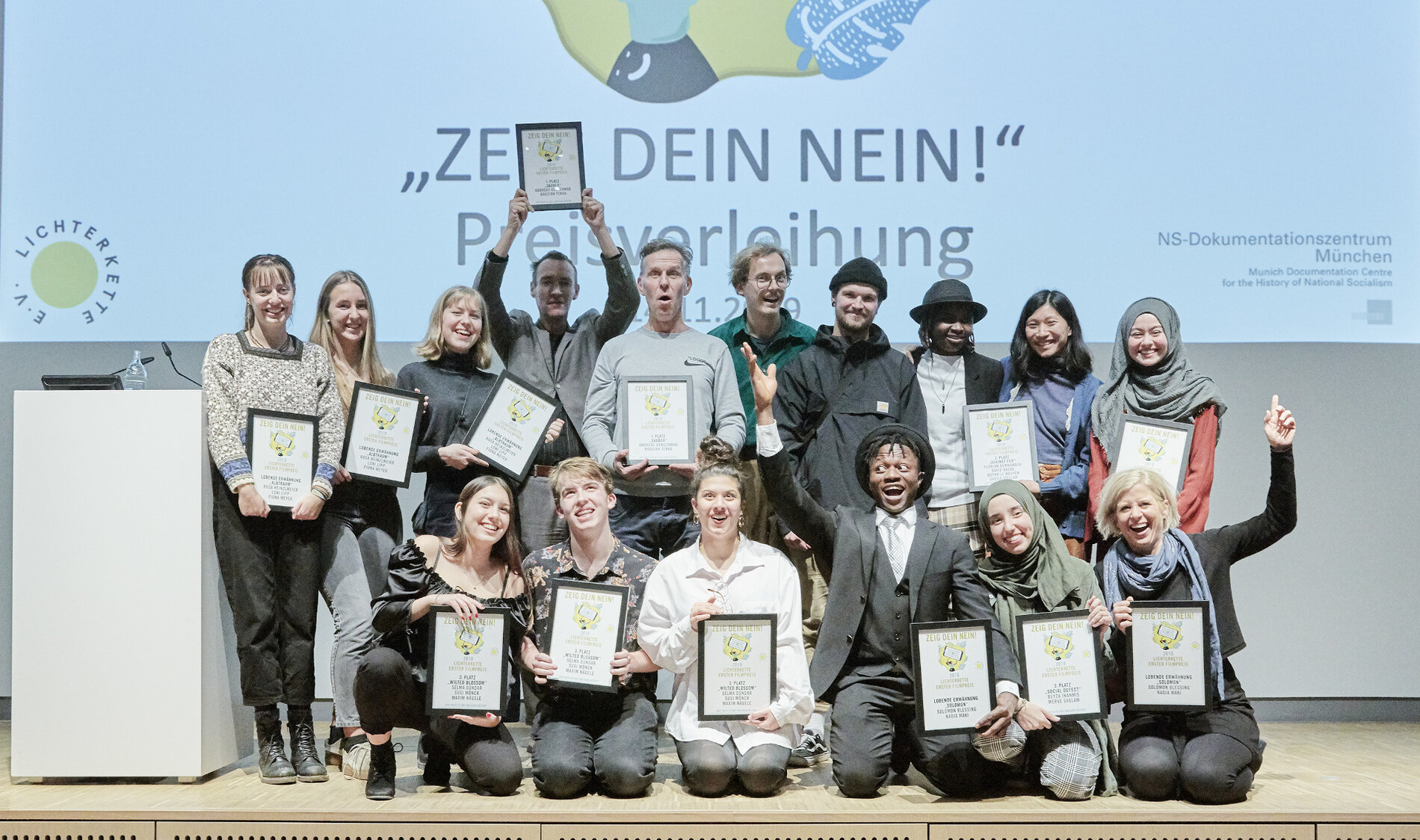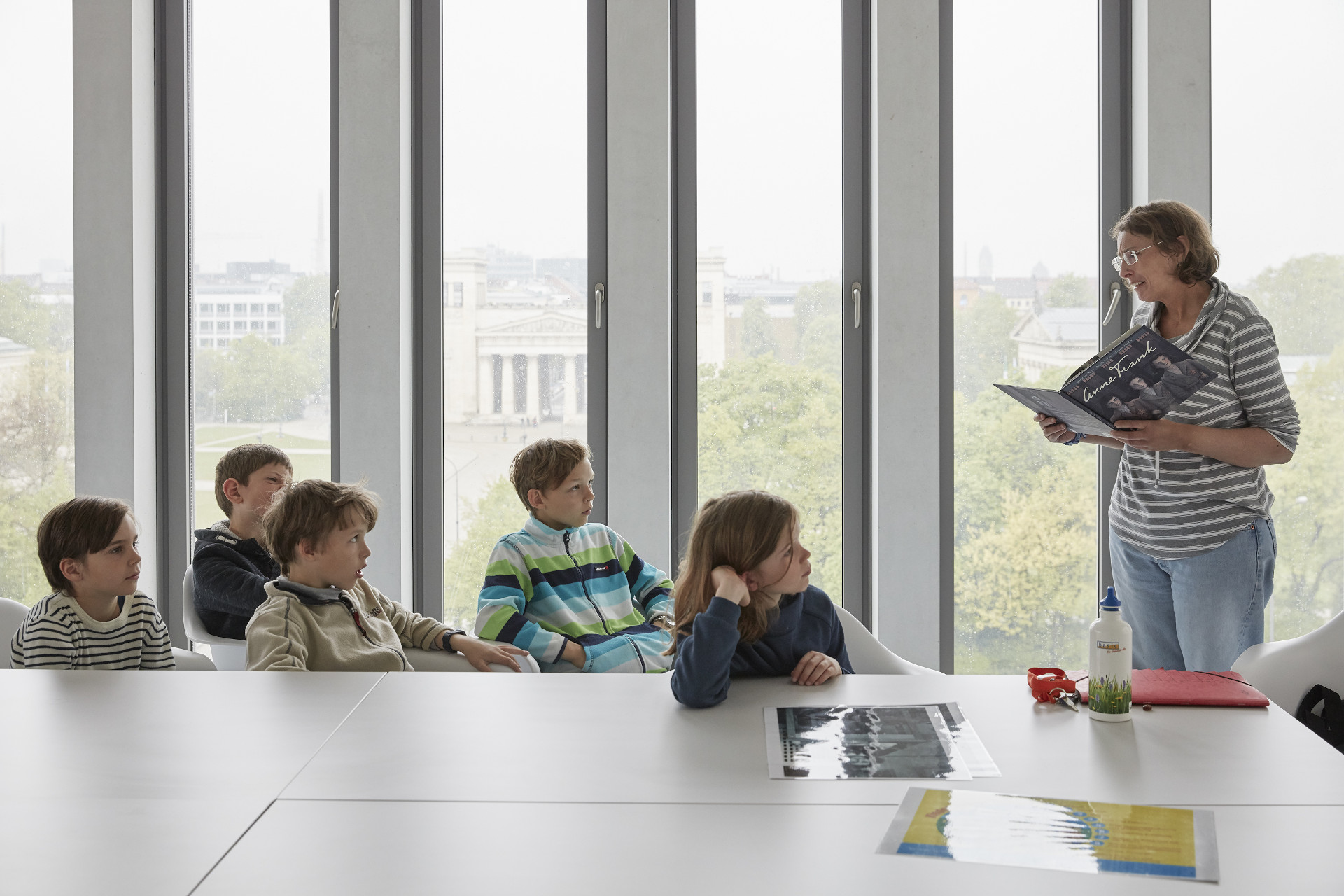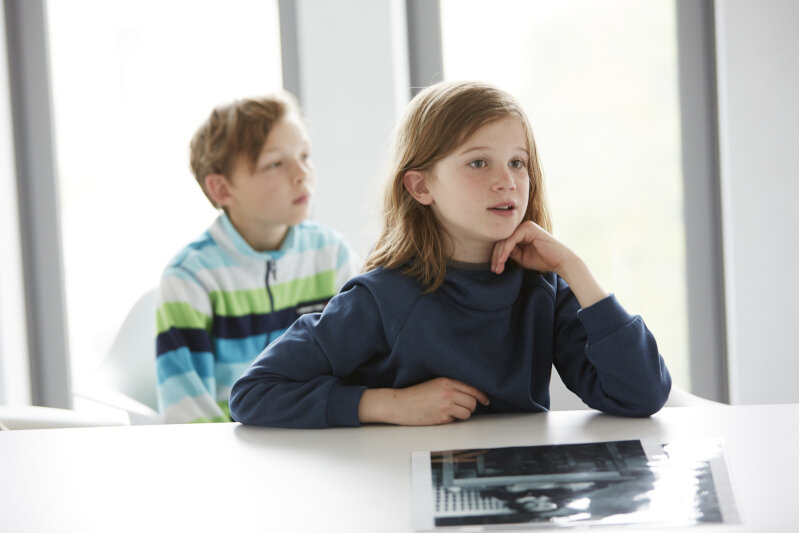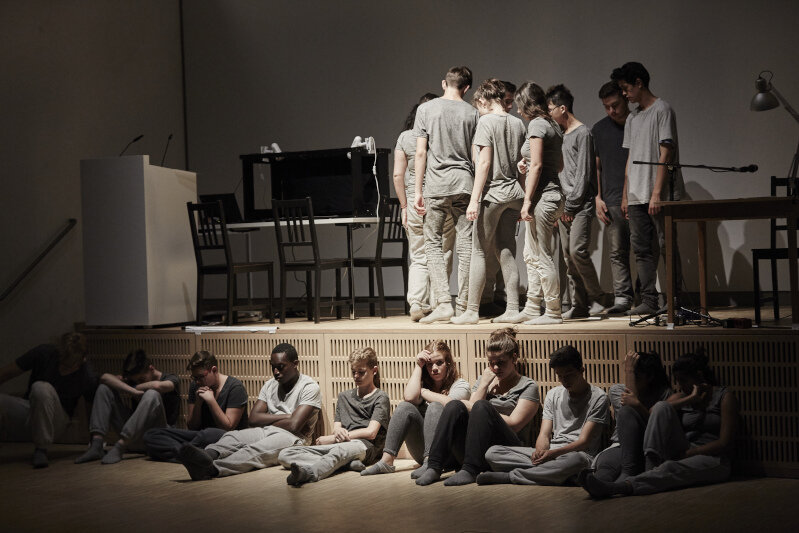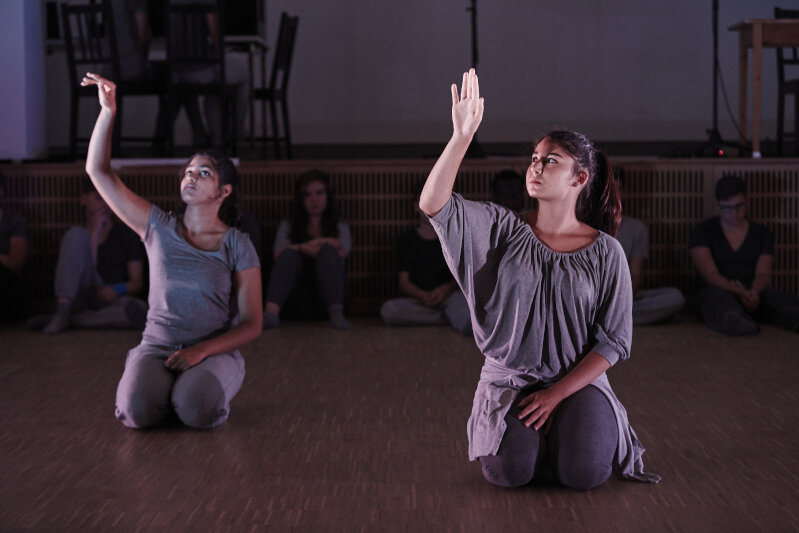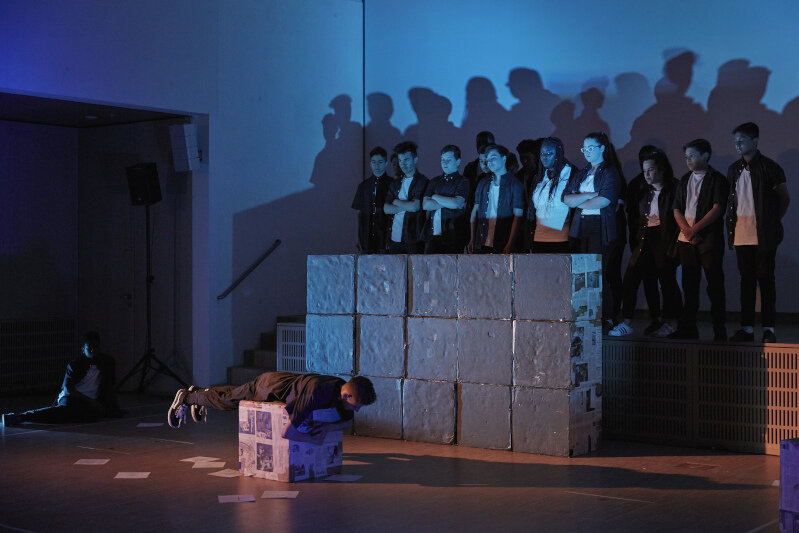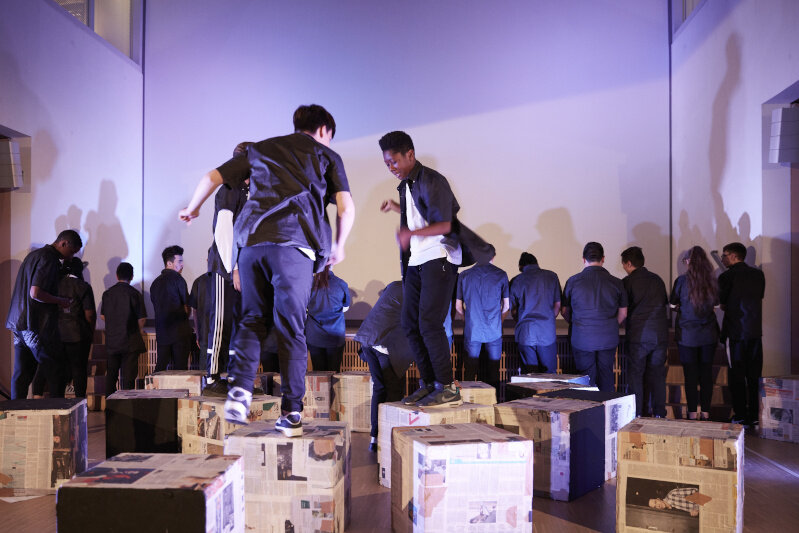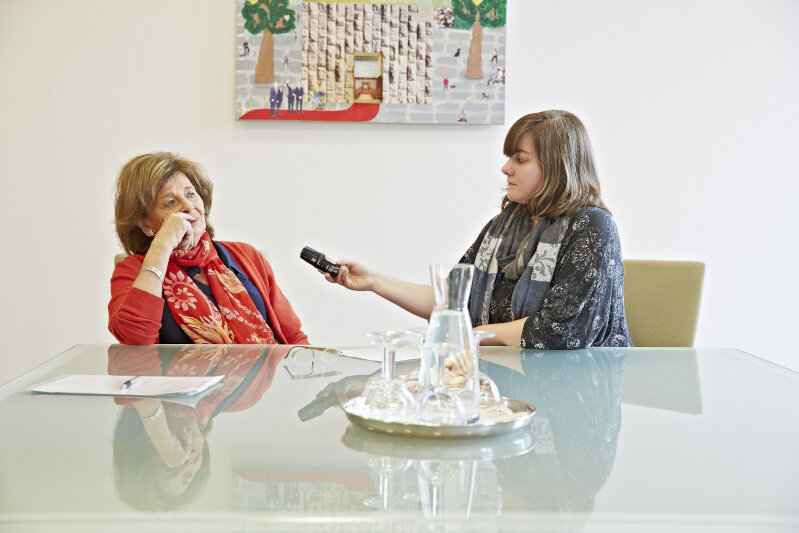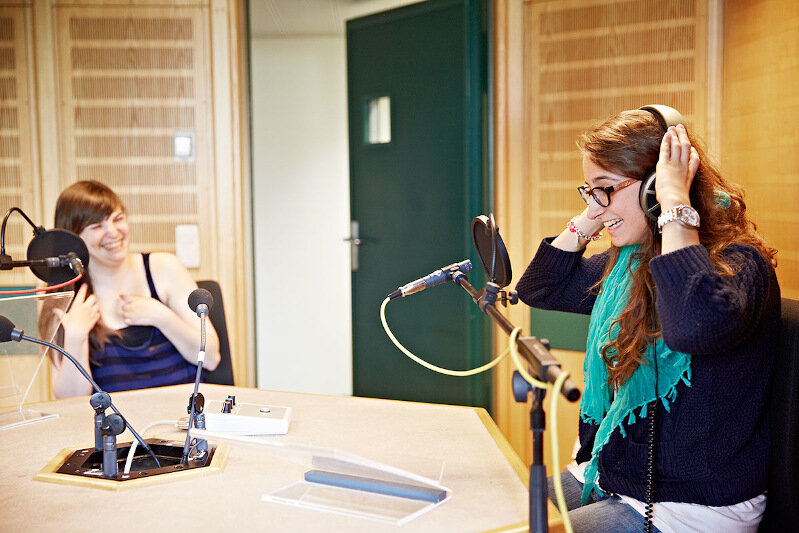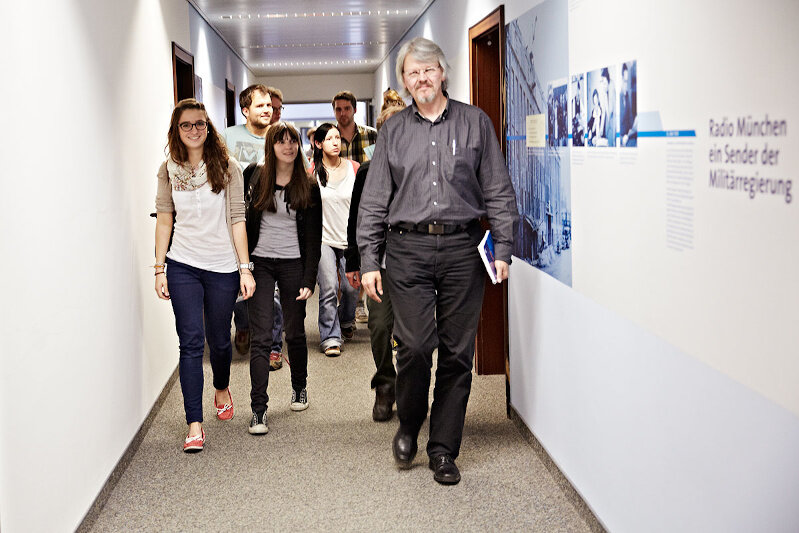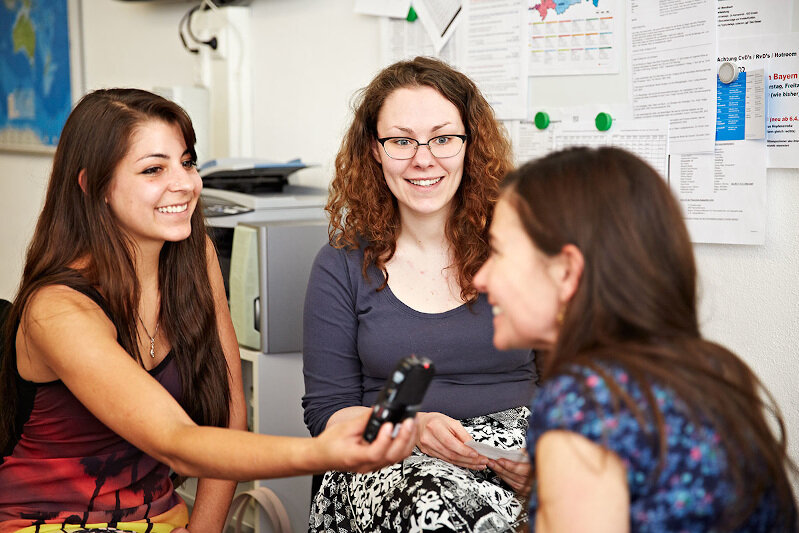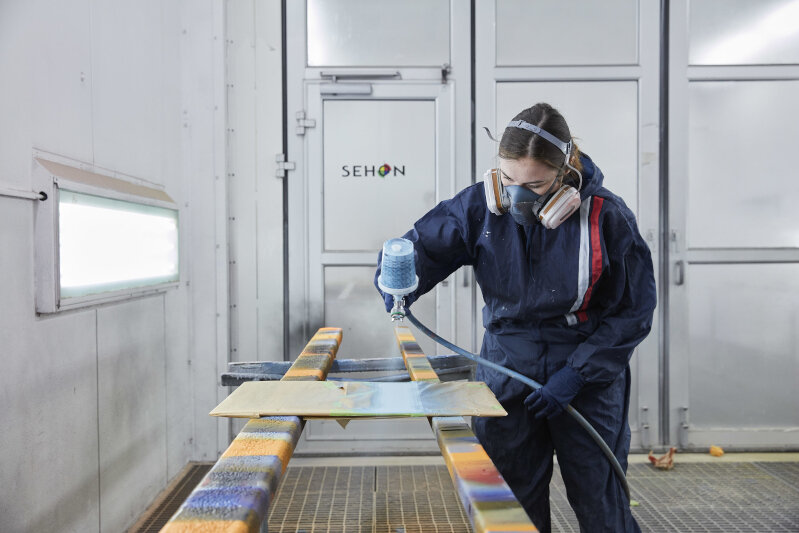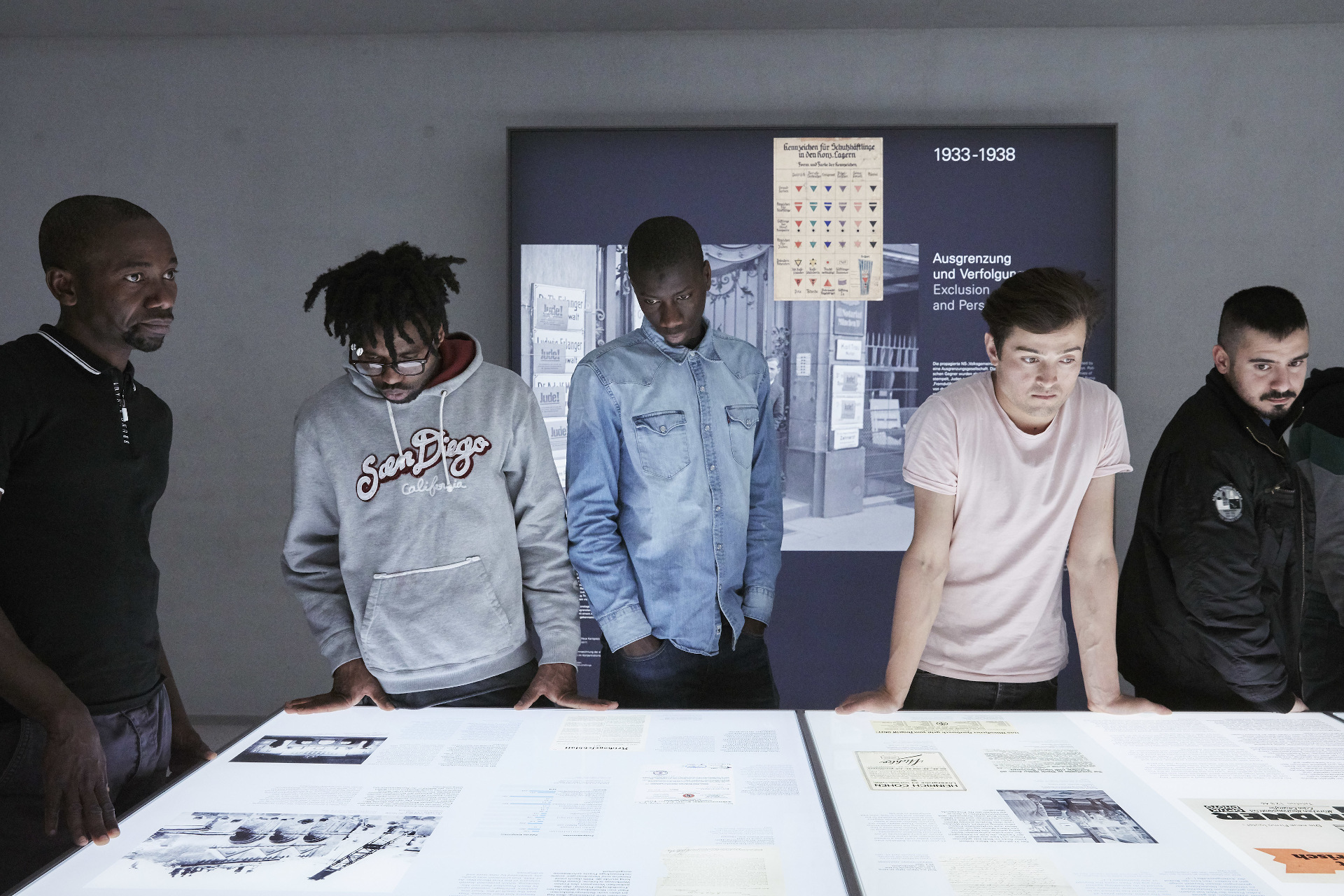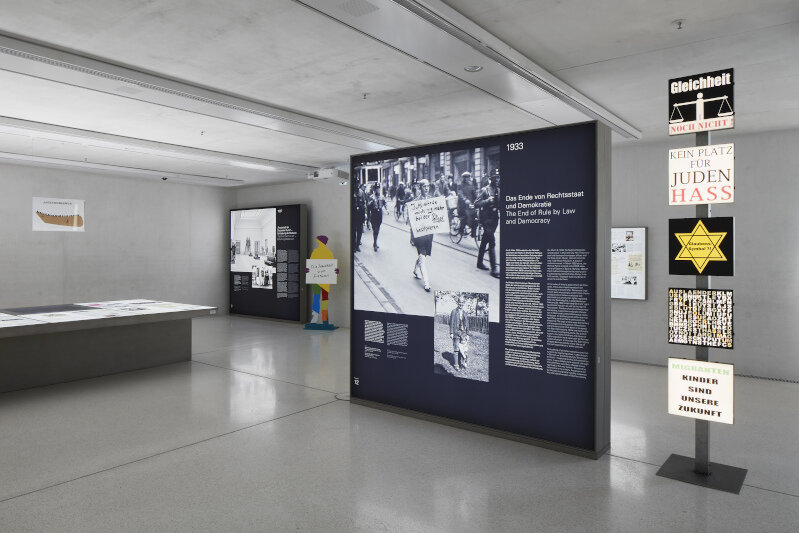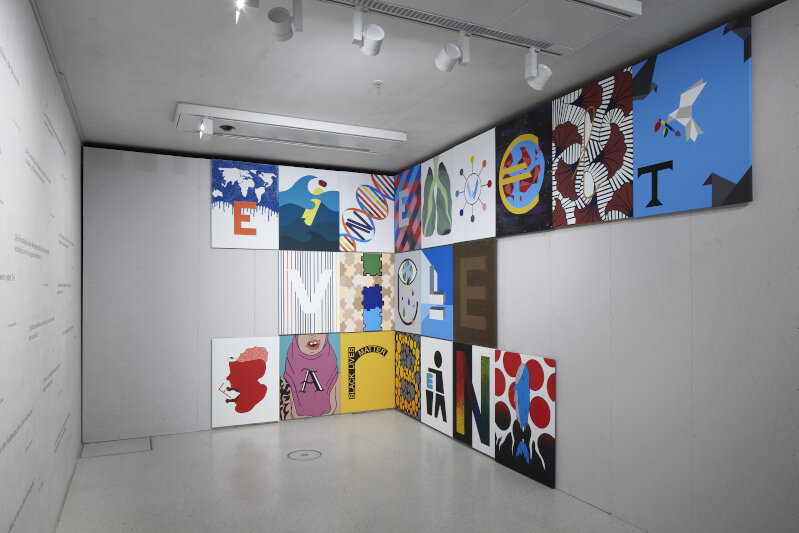The exhibition Not Black and White, which we showed from February 28 to May 5, 2019, was the result of a cooperation with the Munich School for Color and Design. Two hundred school students from seven different professions—body shop paint technicians, painters and varnishers, sign and illuminated advertising manufacturers, visual marketing designers, church restorer-painters and painters, and gilders—created their own images, objects, and texts as illustrations and commentaries for the exhibition Munich and National Socialism. Whereas the historical exhibition is based on black-and-white photos and deliberately avoids emotionalizing elements, the art works by the adolescents and young adults gave it a personal, in some cases very intimate touch.
In their art works the students expressed their impressions and experiences of forced migration, isolation, solidarity, and feelings of security. They addressed both the history of the Nazi era and current socio-political issues, such as: What threatens us, what will secure our future? What values are important to us? How do we eliminate prejudice and enemy stereotypes?
The students responded to the topics in the exhibition by producing artworks that used the specific materials and techniques of their future professions. Thus, they suspended varnished panels above the horizontal tables of the historic exhibition, placed wooden silhouettes of themselves next to the exhibition’s information boards, and displayed their thoughts in typographical form in illuminated boxes programed to change at intervals. Twenty-one wooden panels were devoted to the motto “One world, many colors,” and a large mobile made of cardboard cylinders hung in the space between the first and second floors of the exhibition. The mobile was the result of a project entitled The World in Balance, in which the gilders chose a color from a color fan used in the industry. They each made a cardboard cylinder to fit the topic they had chosen, and all the cylinders were displayed as a suspended mobile, symbolizing a world in balance and the idea that if we think and work against one another the world will lose its balance.


